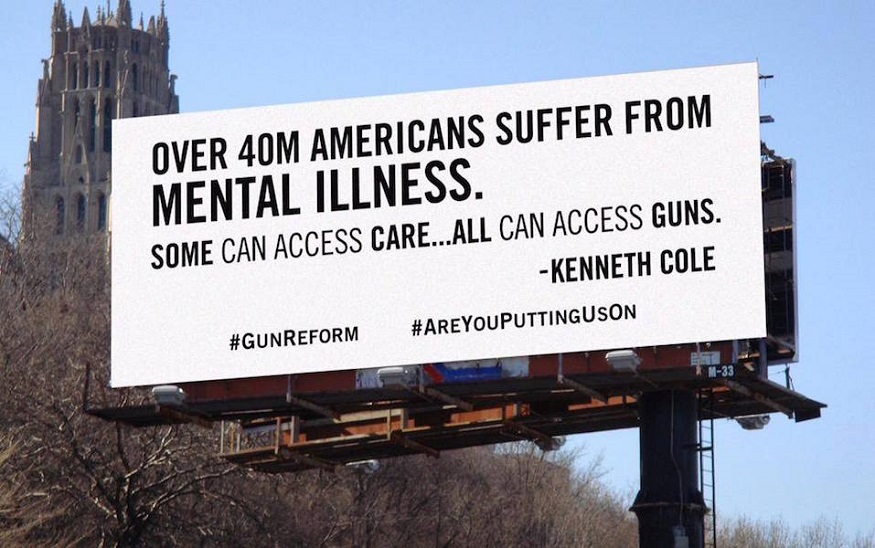If You Want To Support Gun Control, Do It Right
After any tragedy, it’s only logical to wonder what could have been done to stop it, and how to prevent the same thing from happening again. Almost immediately following the Umpqua Community College shooting on October 1st, some have responded with calls for more extensive gun control, with U.S. president Barack Obama saying that “we can actually do something about it, but we’re gonna have to change our laws.” This is certainly a noble sentiment, and it would be morally reprehensible to treat gun violence as presidential candidate Jeb Bush did, as “stuff” that just “happens.” However, many arguments in favor of gun control rest on faulty assumptions that, until addressed, are only going to exacerbate the problem.
First, let’s get the idea that this is purely an American issue out of the way. In a peculiar twist on American exceptionalism, it has become popular to blame mass shootings on “American gun culture” or the “American psyche.” The satirical newspaper The Onion even used the headline “‘No Way To Prevent This,’ Says Only Nation Where This Regularly Happens” after not one, not two, but three different mass shootings. Yes, you could point to how more people have been killed or injured by mass shootings in the United States than, say, Norway or Mexico (it’s 992, 100, and 21 respectively from 2000 to 2014), but that has nothing to do with America’s “gun crisis”—it’s because we’ve got more people. When you look at how many victims there are for every 100,000 people, the United States comes in at a mere 0.31 victims: more than England, Australia, France, and Germany’s 0.04, but below Switzerland’s 0.40, Finland’s 0.78, and Norway’s 1.94. Gun control is strict in Norway, with guns only legally sold to those with a documented use for them: perhaps gun control advocates should examine these laws and statistics instead of spreading misinformation.
Another thing gun control supporters don’t seem to get right about mass shooting is what causes them. One oft-repeated claim is that everyone who shoots anyone must be mentally ill, because no sane person would do such a thing, right? This sentiment is shared by those on both sides of the issue, from Obama, who claimed “it is fair to say that anybody who does this has a sickness in their minds,” to the president of the NRA, who supports an “active national database of the mentally ill” to curb gun violence. Taking this position helps avoid debate, since those who like having guns don’t have to worry about gun control as long as they’re not one of the “crazy ones,” and those who support gun control can feel like they’re doing something.
In reality, people with mental illnesses are statistically more likely to be victims of violence than the mentally healthy. A Swedish study showed that they are five times more likely to be murdered than those without a psychiatric diagnosis. And according to Duke University psychiatry professor Jeffrey Swanson, there is only a very small correlation between mental illness and violence, one that can be explained by other factors. While he found severely mentally ill people to have a 13% chance of committing a violent act, those who were not poor or unemployed, did not abuse drugs, or were not victims of violence were only 2% likely to be violent—the same rate as the mentally healthy population. It’s clear that mental illness per se does not cause violence, but making this assumption does. Protecting mentally ill people from the victimization and job discrimination that results from harmful stereotypes and inspires violence against them would help everybody.
In fact, Swanson’s study found that being male, poor, and a drug or alcohol abuser could predict violence among the healthy population as well. This is unsurprising; our culture associates masculinity with power and aggression, shaming men who are “weak” enough to cry, show sympathy toward women, or perform any kind of activity seen as stereotypically feminine. Living in poverty is bound to make people feel upset and desperate, and it makes sense that people who aren’t careful with their drug and alcohol use might be reckless in other areas of their life as well, though drug use has not been linked specifically to mass shootings. This effect could even explain the apparent relationship between gun laws and violence. Researchers at The Atlantic found that the states that have more mass shootings tend to have more poverty and unemployment, with lower economic development and fewer college graduates. Poorer states tend to vote conservative, and conservatives generally oppose gun control, so the link between gun restrictions and safety could be entirely a coincidence. This could explain why some cities with heavy gun control do experience high rates of violence.
Is gun control the answer? Certainly, mandatory waiting periods, criminal background checks, and safety training should be implemented to prevent accidental deaths and impulsive decisions. However, full-on bans may lead to more criminal activity as people try to circumvent them, and may not even work. There are always going to be outliers, people will always break laws, and nothing can be completely prevented, while many of the laws that try to do so are unfair and ineffective. Perhaps the best gun-control policy is to socially, culturally and materially increase quality of life in the US, so that people do not feel driven to perform such acts of violence.






